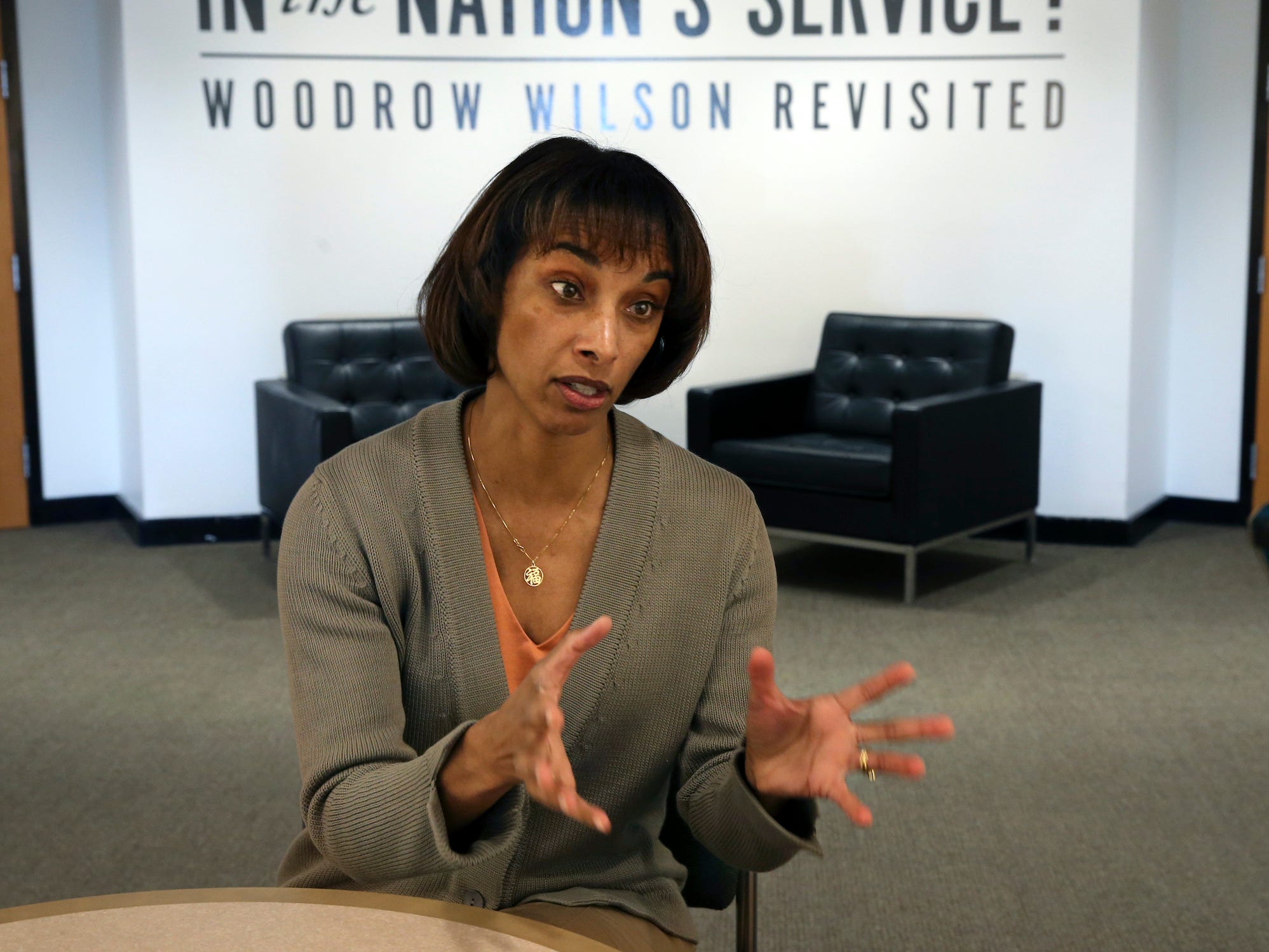
AP Photo/Mel Evans
- CEA Chair Cecilia Rouse said infrastructure needs an upgraded definition to better fit the times.
- She told CBS News that jobs will be created from work on roads and bridges, along with research and development.
- The GOP says Biden's infrastructure plan focuses on too many things besides physical infrastructure.
- See more stories on Insider's business page.
Amidst partisan disagreements on what the word "infrastructure" encompasses, the chair of President Joe Biden's Council of Economic Advisors, Cecilia Rouse, said on Saturday that the term itself could use an upgrade.
In an interview with CBS News, Rouse discussed how Biden's $2 trillion infrastructure plan unveiled last week will help boost the economy and add millions of good-paying jobs. The plan includes not only funding for roads and bridges, but also $174 billion for electric vehicles, $100 billion for broadband, and additional investments that address innovation, climate change, and more.
Rouse said these kinds of investments are just what the country needs right now.
"I think it's important that we upgrade our definition of infrastructure," Rouse said. "One that meets the needs of a 21st-century economy. And that means we need to be funding and incentivizing those structures that allow us to maximize our economic activity."
Funding electric vehicles is important because of the urgency of climate change, Rouse said, and the cost of inaction on the climate later is greater than the cost of acting on climate change now.
Rouse's arguments echo the White House fact sheet released on Wednesday ahead of Biden's unveiling of the plan. It argued that, just as the 1936 Rural Electrification Act involved a federal investment in bringing electricity to nearly every home in the US, it's time to do the same for broadband internet and electric vehicles.
Biden said on Friday that the plan would create 19 million jobs, citing an estimate from Moody's Analytics. Rouse said most of those jobs will be coming from "traditional infrastructure," meaning those who will build the roads and bridges, but they will also come from research and development, which received $180 billion in the plan.
Since even before Biden officially introduced his infrastructure plan, Republican lawmakers have criticized it for doing too much and focusing on things they consider physical infrastructure, namely roads and bridges.
For example, after releasing a statement last week calling the plan "a major missed opportunity," Senate Minority Leader Mitch McConnell said the plan will get zero GOP votes in the Senate because it's a "Trojan horse" for liberal priorities. He also opposes the proposed $3.5 trillion in tax hikes to fund the plan.
And on Thursday, Republican Gov. Kristi Noem of South Dakota voiced her opposition to plan, saying that it funds things that don't qualify as infrastructure, naming housing and pipes as two examples. This sparked a round of criticism online and from left-leaning media figures, who argued that pipes are a core component of any country's infrastructure.
As Insider previously reported, Republicans and Democrats' definitions of infrastructure may differ in part because of regional political polarization, as Democrats tend to live in cities and dense suburbs, which Biden's plan focuses on closely. But even so, a Morning Consult/Politico poll showed that many Republican voters support these aspects of Biden's plan, such as low-income housing.
"I don't think you'll find a Republican today in the House or Senate - maybe I'm wrong, gentlemen - who doesn't think we have to improve our infrastructure," Biden said in his speech unveiling the plan on Wednesday. "They know China and other countries are eating our lunch. So there's no reason why it can't be bipartisan again. The divisions of the moment shouldn't stop us from doing the right thing for the future."